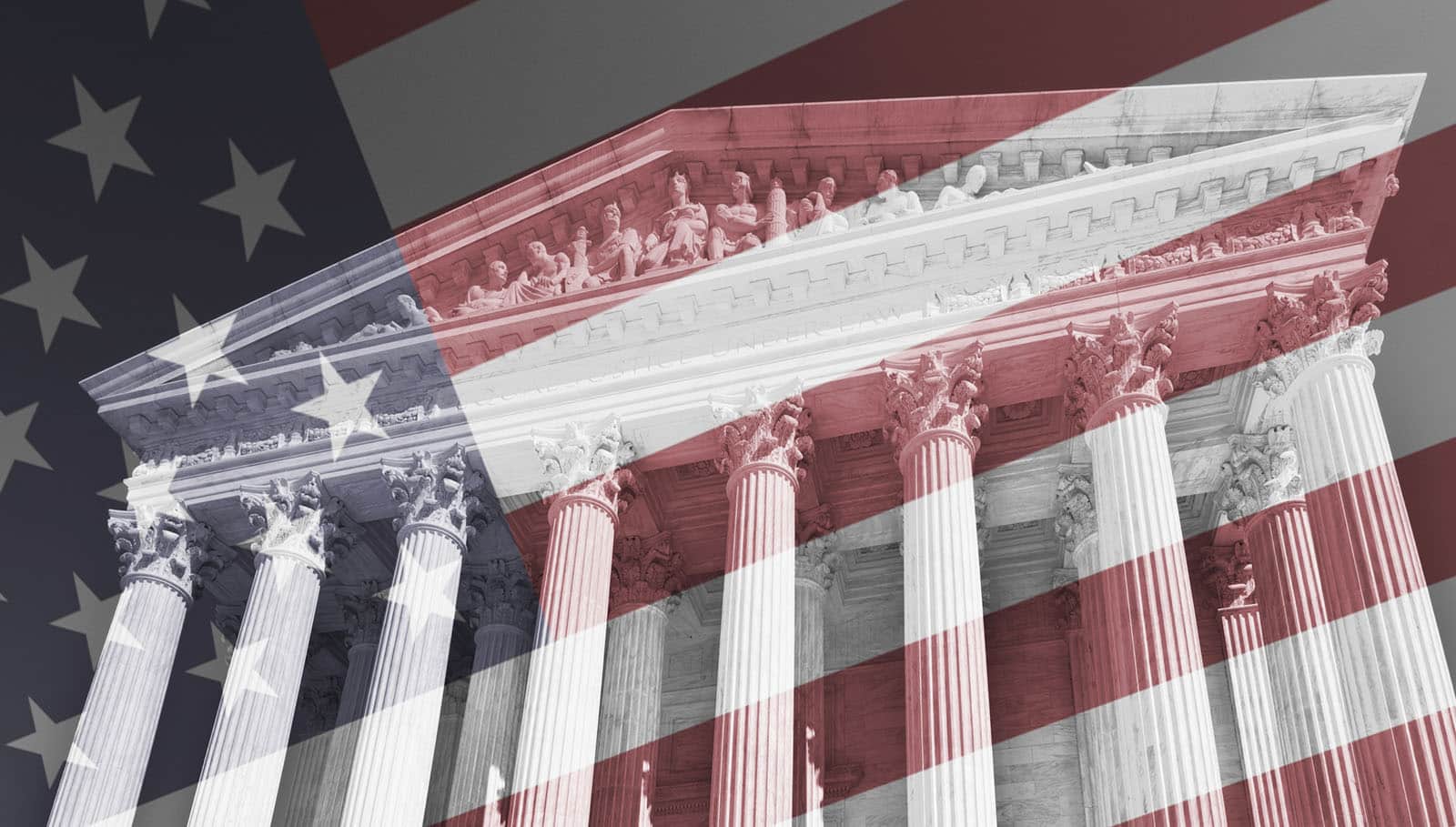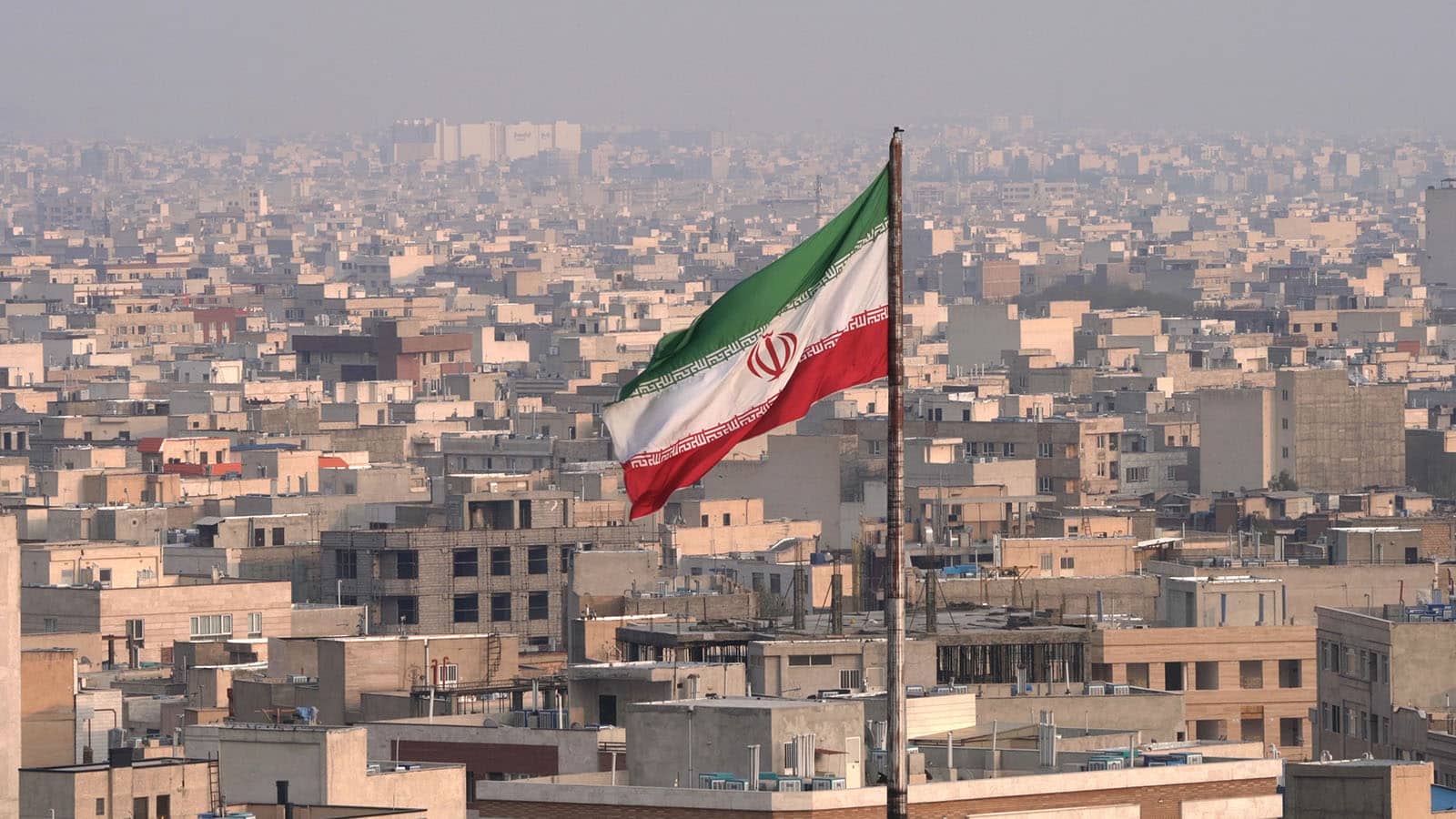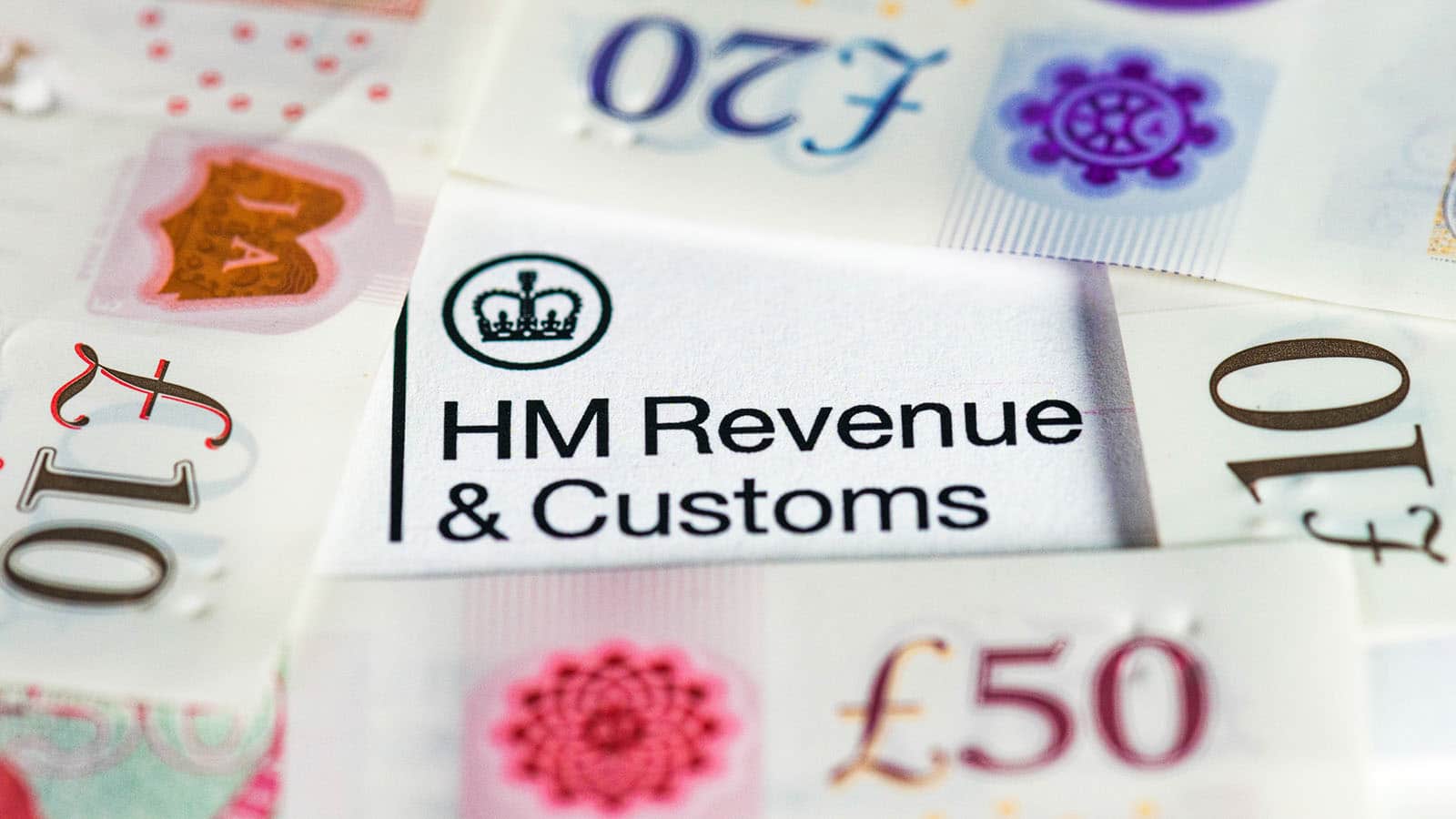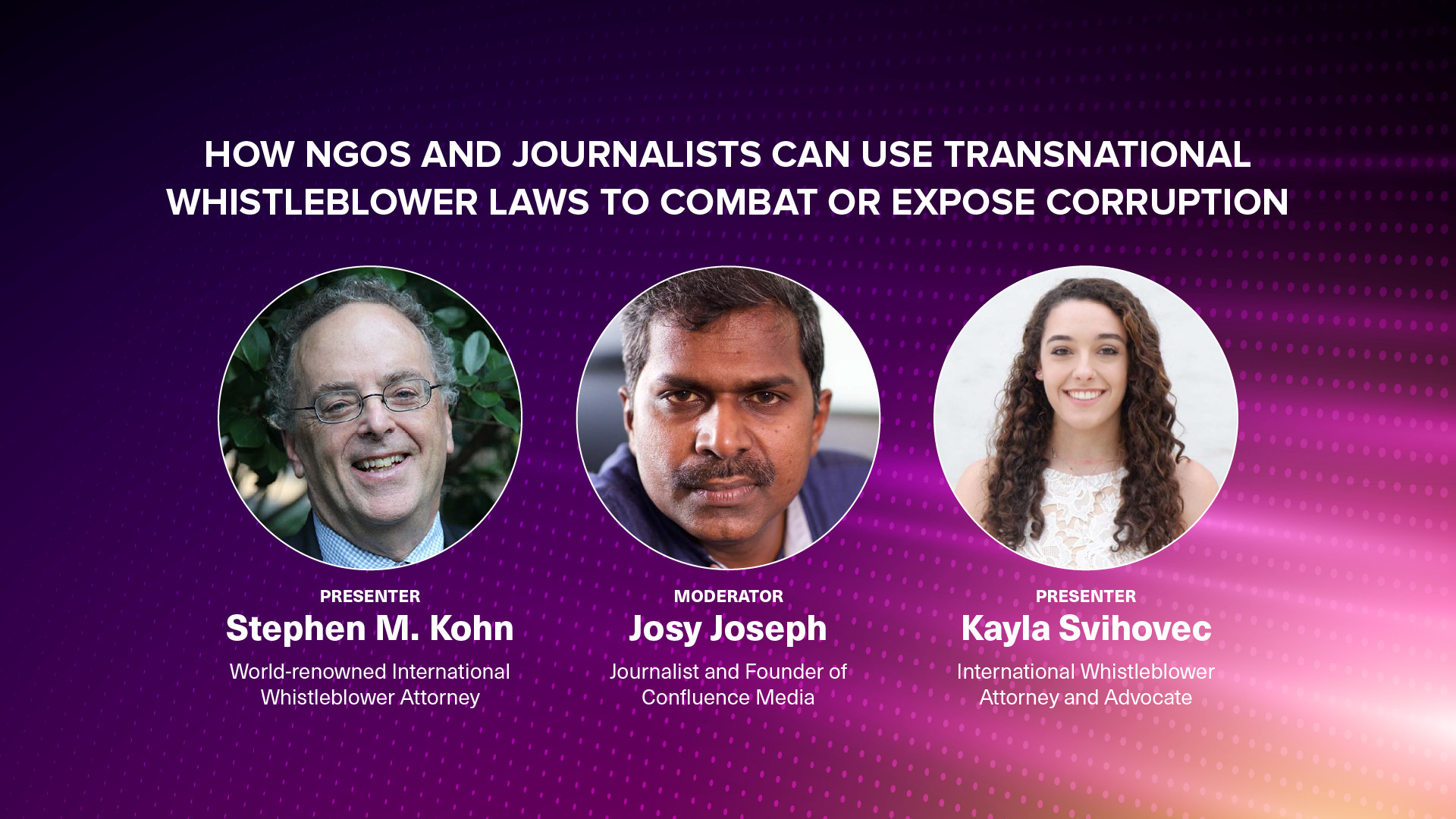An International Whistleblower’s Guide to Using U.S. Laws
Learn how non-U.S. citizens can earn large financial awards as whistleblowers under major U.S. whistleblower laws and programs. This guide explains how to confidentially report foreign bribery, BSA or AML violations, or securities or commodities fraud.
October 4, 2025

This information is provided for educational purposes only by Kohn, Kohn & Colapinto and does not constitute legal advice. No attorney-client relationship is created by accessing this content. Laws and regulations may change, and this material may not reflect the most current legal developments. If you believe you have a whistleblower claim, consult a qualified attorney to discuss your specific circumstances.
Introduction
U.S. law provides a confidential path for non-U.S. citizens to report international corruption and receive significant financial awards.
Whistleblower programs covering foreign bribery, money laundering, and securities fraud have a proven global reach, with an estimated $1 billion already awarded to individuals outside the United States.
This guide explains how these powerful laws work and details the protections and rewards available to international whistleblowers.
Quality Information Over Whistleblower Nationality
Major U.S. whistleblower programs do not require you to be a U.S. citizen or resident to be eligible for an award or protection. You can live anywhere in the world and provide information about misconduct that violates U.S. law.
The U.S. government is focused on receiving high-quality, actionable intelligence to stop international corruption, regardless of the whistleblower’s nationality.
What truly matters is the quality of the information you provide. U.S. agencies need specific, credible, and timely intelligence that they can act upon.
What Does “Quality Information” Mean? An Example
To understand the difference, consider two potential whistleblowers reporting a foreign bribery scheme by a U.S.-traded company operating in Mexico.
- A Weak Tip (General Suspicion): A person submits a tip saying, “My company’s executives in Azerbaijan seem too close with local officials. I think they are paying bribes to win contracts.” While the suspicion may be valid, this statement is too general for investigators to act on. It lacks specific evidence of who, what, when, where, and how.
- A High-Quality Tip (Actionable Intelligence): An accountant at the same company submits a tip with specific, non-public information. She provides:
- Specific evidence: Copies of internal spreadsheets and emails showing wire transfers from the company’s U.S. bank account to a “consulting firm” that is secretly owned by a local official’s family member.
- Key individuals: The names of the executives who approved of these payments and internal communications where they discussed the need to “facilitate the approvals.”
- A clear timeline: The dates the payments were made, corresponding directly to the dates key permits, were awarded to the company.
This second submission is considered high-quality because it is a roadmap for investigators. It provides them with concrete evidence, names, dates, and a clear violation of a U.S. law (the Foreign Corrupt Practices Act).
This is the kind of information that leads to successful enforcement actions and, in turn, significant whistleblower awards.
U.S. Whistleblower Laws with Transnational Reach
Several powerful U.S. laws have a significant transnational reach, meaning they apply to misconduct that occurs outside of the United States.
These laws create dedicated whistleblower programs designed to encourage individuals with knowledge of wrongdoing to come forward.
If your information leads to a successful enforcement action, you could be eligible for a financial award and legal protection against retaliation, regardless of your citizenship.
Below is an overview of these laws:
The SEC Whistleblower Program (Foreign Corrupt Practices Act & Securities Fraud)
The U.S. Securities and Exchange Commission (SEC) Whistleblower Program is one of the most powerful tools for non-U.S. citizens. It primarily targets two types of international misconduct:
- Foreign Corrupt Practices Act (FCPA) Violations: This is the primary U.S. law targeting international bribery. It makes it illegal for companies with a U.S. connection to bribe foreign government officials to win or retain business.If you have evidence of a company paying kickbacks, using sham “consultants” to funnel money, or falsifying its books to hide bribes, your information could be extremely valuable.
- Securities Fraud: This includes any deceptive practice related to the stock market, such as accounting fraud to inflate a company’s earnings, making false or misleading statements to investors, or insider trading.
How it applies internationally: This program covers any company—foreign or domestic—that is listed on a U.S. stock exchange (like the NYSE or NASDAQ) or is otherwise required to file reports with the SEC.
Whistleblowers may be eligible for an award of 10% to 30% of the monetary sanctions collected when the total exceeds $1 million.
The CFTC Whistleblower Program (Commodities, Derivatives & Crypto)
The Commodity Futures Trading Commission (CFTC) Whistleblower Program polices the U.S. derivatives markets, which have a massive global footprint.
This includes futures, options, and swaps involving everything from oil and agricultural products to financial rates.
This program is especially relevant today for whistleblowers with information on:
- Cryptocurrency Fraud: The CFTC has jurisdiction over fraud and manipulation involving cryptocurrencies like Bitcoin and Ethereum.
- Market Manipulation: Schemes to artificially influence the price of commodities.
- Foreign Exchange (Forex) Fraud: Fraudulent activities in the forex markets.
How it applies internationally: If the fraudulent activity has a connection to U.S. derivatives markets or uses U.S.-based infrastructure, the CFTC may have jurisdiction.
The CFTC award program also offers 10% to 30% of sanctions collected over $1 million.
The FinCEN/AML Whistleblower Program (Money Laundering & Sanctions)
This recently revitalized program, run by the Financial Crimes Enforcement Network (FinCEN), targets violations of the Bank Secrecy Act (BSA). It is a critical tool in the global fight against illicit finance. Whistleblowers can report:
- Anti-Money Laundering (AML) Failures: Banks or financial institutions that fail to report suspicious transactions, ignore “Know Your Customer” (KYC) rules, or knowingly help criminals launder money.
- Sanctions Violations: Financial institutions that process transactions for individuals, companies, or countries on the U.S. sanctions list (maintained by the Office of Foreign Assets Control, or OFAC).
How it applies internationally: This law has a broad reach because of the U.S. dollar’s role as the world’s primary reserve currency.
If a foreign bank processes illicit transactions in U.S. dollars, it must typically clear them through the U.S. financial system, creating a connection for U.S. jurisdiction.
The award can be up to 30% of collected penalties over $1 million.
The IRS Whistleblower Program (Major International Tax Fraud)
The Internal Revenue Service (IRS) Whistleblower Program rewards individuals who report significant tax evasion. This is highly relevant for international whistleblowers who may have insight into:
- Offshore Tax Schemes: Wealthy individuals or corporations using undeclared offshore bank accounts to hide assets and income.
- Transfer Pricing Abuse: Multinational corporations illegally shifting profits to low-tax jurisdictions to avoid paying U.S. taxes.
- Use of Shell Companies: Creating anonymous shell companies to conceal ownership and evade U.S. tax obligations.
How it applies internationally: The program applies as long as the whistleblower is reporting the underpayment of U.S. taxes.
For example, a foreign banker in Switzerland with knowledge of U.S. clients hiding assets, or an employee of a foreign subsidiary who knows the parent company is cheating on its U.S. taxes, can be a whistleblower.
The award is 15% to 30% of the amount collected by the IRS.
The U.S. Government Supports International Whistleblowers!
The SEC has been the most vocal proponent of the global nature of its whistleblower program. This stance was made crystal clear in official reports and announcements.
“The SEC’s whistleblower program has a global reach. Whistleblowers from all over the world should know that they are eligible for an award when they provide high-quality, original information that leads to a successful enforcement action.”
— Jane Norberg, former Chief of the SEC’s Office of the Whistleblower (Statement from the SEC’s 2017 Annual Report to Congress).
This sentiment was also strongly emphasized when the agency issued its first major award to a foreign whistleblower.
“Whistleblowers from anywhere in the world are invited to provide the SEC with evidence of wrongdoing… The SEC will protect your identity and pay you for your information if it leads to a successful action.”
— Sean McKessy, former Chief of the SEC’s Office of the Whistleblower (Statement from SEC Press Release 2014-206, September 22, 2014).
The CFTC, which regulates the massive U.S. derivatives and commodities markets, echoed this position, especially in connection with its largest-ever award of nearly $200 million to a single international whistleblower.
“This record-breaking award is another example of the international scope of the CFTC’s Whistleblower Program… We hope that this award encourages other international whistleblowers to come forward with information about potential violations of the CEA.”
— Gretchen L. Lowe, former Acting Director of the CFTC’s Whistleblower Office (Statement from CFTC Press Release 8448-21, October 21, 2021).
Can Non-U.S. Companies Be Held Accountable Under U.S. Laws?
U.S. authorities have collected tens of billions of dollars in penalties from some of the world’s largest non-U.S. corporations for foreign bribery, money laundering, and fraud. A company doesn’t need to be headquartered in the United States to be subject to its laws.
This is possible because of a legal principle called jurisdictional nexus. In simple terms, if a foreign company chooses to benefit from the U.S. financial system or markets, it must also play by U.S. rules. A sufficient connection, or nexus, is created if the company:
- Lists its stock or securities on a U.S. stock exchange (like the NYSE or NASDAQ).
- Uses U.S. banks or the U.S. dollar to move money, even if the payments are between two other countries.
- Has a subsidiary, office, or employees located within the United States.
- Uses U.S.-based servers for email or communications in furtherance of a crime.
If a company touches the U.S. system in a meaningful way, it can be held accountable.
Landmark International Enforcement Actions
The following are just a few high-profile examples of major non-U.S. companies that have paid enormous penalties. The detailed information needed to build such complex cases often originates from courageous whistleblowers.
- Airbus SE (France): In 2020, French aerospace company Airbus SE agreed to a global settlement of approximately $4 billion to resolve charges stemming from a massive, years-long scheme to bribe government officials and airline executives around the world to win lucrative contracts. The company was subject to U.S. jurisdiction and prosecution because it acted as a U.S. government contractor and had used U.S.-based consultants and communications to facilitate its bribery schemes.
- Glencore plc (Switzerland/UK): In 2022, the Swiss-based mining and commodity trading giant Glencore plc paid over $1.1 billion to U.S. authorities for a decade-long scheme involving widespread bribery of officials across Africa and Latin America, as well as a separate scheme to manipulate commodity prices. U.S. jurisdiction was established because Glencore had securities listed on U.S. exchanges and admitted to using U.S. banks and shell companies to make and conceal its corrupt payments.
- Siemens AG (Germany): In a groundbreaking 2008 case that established the truly global reach of U.S. anti-bribery law, German engineering firm Siemens AG paid $800 million to U.S. authorities. The penalty was for a systematic and long-standing practice of paying bribes to government officials around the world to secure major public works contracts. The company was subject to the Foreign Corrupt Practices Act (FCPA) simply because it had chosen to list its stock on the New York Stock Exchange.
- Danske Bank (Denmark) Kohn, Kohn & Colapinto Case: Danish company Danske Bank was ordered to pay a staggering $2 billion fine to U.S. authorities in 2022 for colossal anti-money laundering (AML) failures. Its small Estonia branch became a hub for criminals, allowing billions of dollars from high-risk clients in Russia and other states to flow into the global financial system with little to no oversight. The bank’s connection to the U.S. was its access to the U.S. financial system through American banks, which it then lied to to process over $160 billion in suspicious transactions.
- Telia Company AB (Sweden): Swedish telecom giant Telia Company AB paid over $965 million in a 2017 global settlement for bribing government officials in Uzbekistan with over $330 million to secure access to the country’s telecommunications market. Like the Siemens case, its connection to the U.S. was its listing on a U.S. stock exchange—in this case, the NASDAQ—which required its compliance with American anti-bribery laws.
Awards Received by Non-U.S. Citizens
U.S. whistleblower programs have a proven and successful track record of rewarding non-U.S. citizens for their courage. While many award details are kept confidential to protect whistleblowers’ identities, it’s estimated that individuals outside the U.S. have been awarded approximately $1 billion across all programs.
These are not just possibilities; they are realities. U.S. agencies have repeatedly granted multi-million dollar awards to foreign nationals who provided critical information.
Real-World Examples of International Whistleblower Awards
Here are a few landmark cases that highlight the success of international whistleblowers:
- The Largest CFTC Award (Nearly $200 Million): In 2021, the CFTC awarded nearly $200 million to a single foreign whistleblower whose information was crucial in a major enforcement action against Deutsche Bank related to the LIBOR rate-manipulation scandal. This record-breaking award underscores the immense value U.S. authorities place on high-quality international tips.
- The Landmark SEC International Award ($30 Million): In 2014, the SEC made a clear statement on the global scope of its program by awarding more than $30 million to a whistleblower living in a foreign country. In announcing the award, the agency’s leadership publicly invited whistleblowers from “anywhere in the world” to come forward, confirming that non-U.S. citizens are welcome and eligible.
- Widespread Global Success ($50 Million): Demonstrating broad and consistent application, the SEC awarded a combined $50 million to two whistleblowers from two different foreign countries in a 2018 case. Their separate, high-quality tips helped the agency uncover a significant fraud that would have been difficult to detect otherwise.
A Proven Tool for Global Justice
As these examples show, U.S. whistleblower programs are powerful, proven, and accessible tools for individuals anywhere in the world to fight corruption. You do not need to be a U.S. citizen, and the misconduct does not need to have occurred on U.S. soil. What matters is that you have high-quality, non-public information about a violation of U.S. law.
If you have information about international corruption, it’s crucial to understand your rights and how to proceed safely. We encourage you to contact our experienced international whistleblower lawyers to discuss your options and ensure you are protected every step of the way.
Our Firm’s Cases

$300 Million in Sanctions and Fines
Our firm and Athens-based Greek law firm of Pavlos K. Sarakis & Associates jointly represented Greek whistleblowers who proved that the multinational Swiss-based pharmaceutical company Novartis paid millions in bribes to illegally market drugs in violation of the FCPA. Novartis was required to pay $300 million in sanctions and fines.

$70 Million in Rewards
With an unwavering commitment to our clients who expose foreign corruption, we have been instrumental in obtaining over $70 million in rewards for multiple non-U.S. citizen whistleblowers across Europe, Asia, and Latin America.




